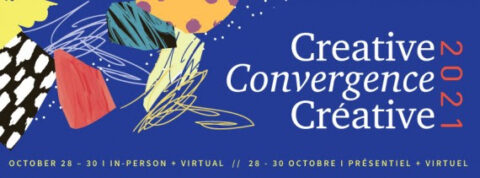Call for Presentations!
The world has endured a collective traumatic experience throughout the past eighteen months. According to a study conducted by the United Way Centraide, 76% of Canadians surveyed say the pandemic has had a negative effect on their mental health. The Government of Canada reports, “People are being challenged like never before due to isolation, physical health concerns, substance use concerns, financial and employment uncertainty, and the emotional dialogue around racial equality.”
As arts and learning practitioners, we regularly see the impact that the arts have in students and participants’ lives. The World Health Organization reports that “Results from over 3000 studies identified a major role for the arts in the prevention of ill health, promotion of health, and management and treatment of illness across the lifespan.” In Canada, Hill Strategies concludes, “There is solid evidence of a connection between cultural participation and mental health.”
As we eagerly, yet tentatively, look towards pandemic recovery, we recognize the vital role that the arts must play in the health and wellbeing of Canada’s citizens, communities and society as a whole. We have also learned a great deal about the importance of technology and the intrinsic value it has to facilitate connectivity and broaden the range of arts and learning opportunities available to the public.
In October 2021, delegates committed to arts and culture, education, recreation, health, therapy, medicine, humanities, social justice and community will gather in groups across Canada and online for Creative Convergence, the biennial conference presented by the Canadian Network for Arts & Learning. This creative exchange will feature an overarching theme of “recovery” and include streams of health & wellbeing, and community connectivity.
Themes:
The conference will explore the following themes:
- the impact of the pandemic on arts and learning practice and programs – in schools, in communities, in professional arts organizations, in other sectors committed to and delivering arts and learning experiences
- the opportunities, challenges and possible pitfalls for arts and learning in a digital age and what we’ve learned throughout the social distancing measures
- the opportunities through which arts and learning can contribute to post-pandemic health and wellbeing – of individuals, communities and society
- the strategies that can be employed to ensure the survival of artistic learning in all contexts and sectors
All presenters must register for the conference and pay the $25 fee for virtual attendance. Registration will be available on the CNAL/RCAA website.

